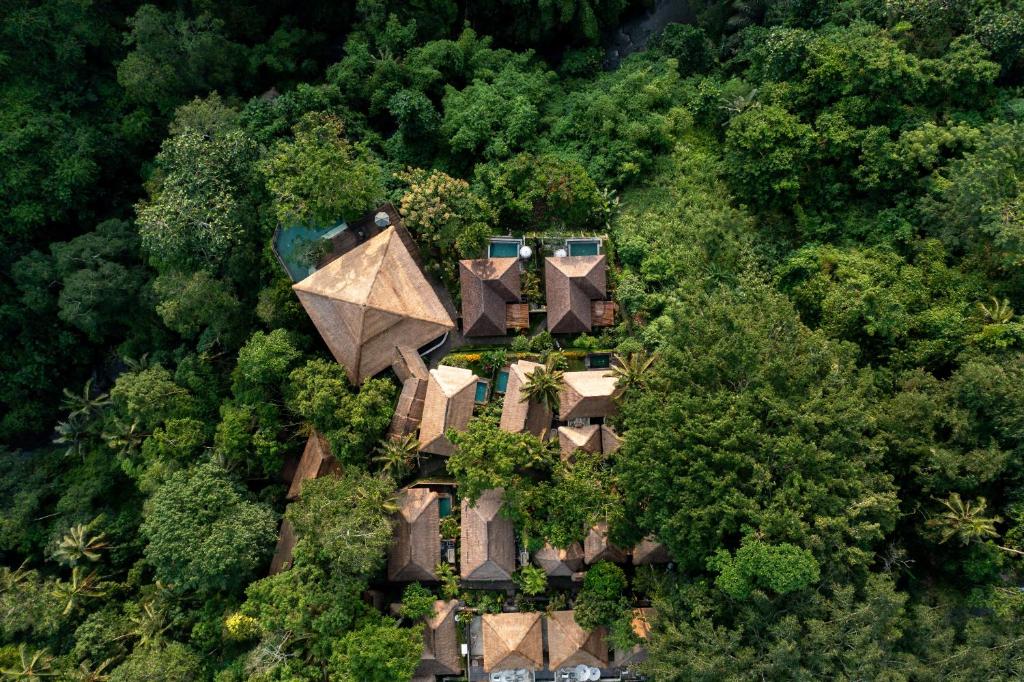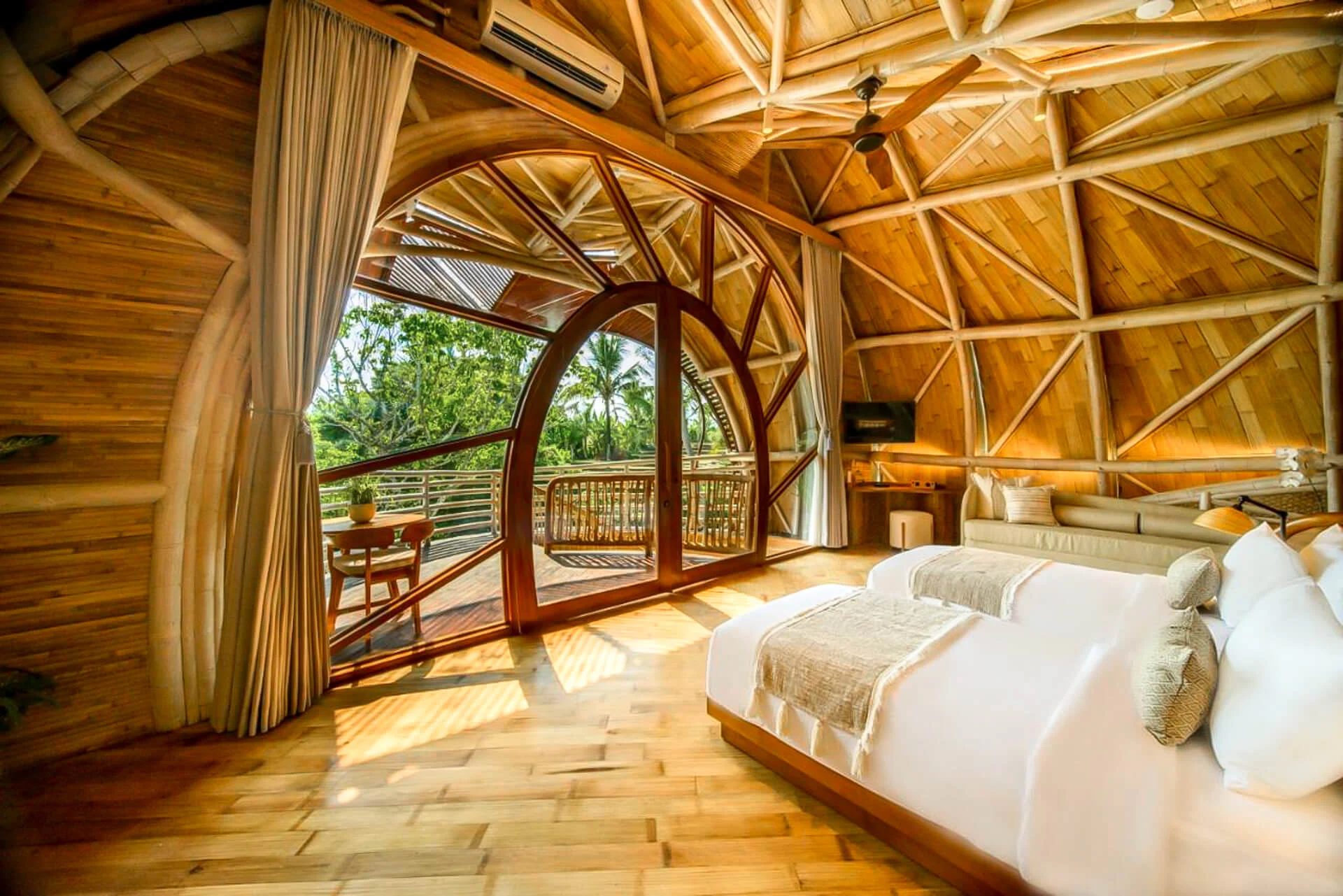Why Build in Bali?
Bali stands out as a lucrative destination for real estate investments for several reasons:
- Economic Value: The cost of land and property remains low compared to other popular destinations worldwide, making it accessible for a wide range of investors.
- Tourist Attraction: As a top tourist destination, Bali offers high rental yield potentials due to its constant stream of international and domestic visitors.
- Quality of Life: The island’s rich culture, natural beauty, and climate make it an attractive place to live, increasing demand for residential properties.
Understanding Land ownership
Foreign ownership of property in Bali is subject to Indonesian laws, which restrict direct ownership but provide viable alternatives:
- Leasehold: The most straightforward method for foreigners, allowing control of the property for periods typically up to 30 years, with options to extend. This is less of a financial burden upfront and avoids some of the legal complexities of freehold ownership.
- Freehold: Although legally complex, setting up a PT PMA (foreign investment company) allows for longer-term control and potentially higher returns on investment. It is crucial to work with legal experts to navigate this process and ensure compliance with Indonesian laws. To have more understanding about land ownership, read our blog: Freehold and Leasehold in Bali.
Choosing the Right Land
Selecting the appropriate plot involves several critical considerations:
- Location and Accessibility: Proximity to amenities, tourist attractions, and infrastructure like roads and utilities greatly influence the property’s value and appeal.
- Environmental Considerations: Bali’s diverse environment can impact building conditions-proximity to the ocean might require specific building materials to withstand humidity and salt, while inland plots may have different soil types affecting foundation requirements.

Regulatory Compliance
Ensure the land is zoned appropriately for residential use and that there are no legal disputes which could complicate development.
- Building Permits (PBG): The PBG (Persetujuan Bangunan Gedung), or building construction authorization, replaces the older IMB (Izin Mendirikan Banguanan). This permit is mandatory for anyone wishing to construct, renovate, or maintain a building in Bali. The process has been streamlined to be quicker than the old IMB system, with promises of permits being issued within days, although actual times can vary.
Land Zoning
Land zoning in Bali is detailed and strictly enforced, with different zones designated for various uses such as residential, agricultural, commercial, and tourism. Each zone is identified by specific colors on zoning maps, which are crucial for determining what you can build and where.
- Residential Zones (Yellow): These areas are designated primarily for housing. Development in these zones is generally restricted to dwellings and may have limitations on the type of commercial activities allowed.
- Commercial Zones (Red): These areas are designated for business activities. Buildings here can be used for shops, offices, and other commercial enterprises. Mixed-use developments are also common in these zones, allowing for both residential and commercial uses.
- Tourism Zones (Pink/Purple): Specifically designed to cater to Bali’s large tourism industry, these zones allow for the development of hotels, resorts, and other tourist facilities. These areas are strategically located near beaches, cultural sites, and other tourist attractions.
- Agricultural Zones (Green): These zones are reserved for agriculture and are protected from most types of construction to preserve Bali’s agricultural land. Temporary structures related to agricultural activities may be permitted, but permanent buildings are generally restricted.
- Industrial Zones (Blue): These are less common in Bali but are designated for manufacturing and industrial use. Such zones are typically located away from residential and tourist areas to minimize impact.
Design and Planning
Designing your villa should reflect not only your aesthetic preferences but also practical considerations:
- Architectural Integrity: Designs should harmonize with local styles and weather conditions, incorporating elements like wide overhangs to protect against rain and sun while maximizing natural ventilation.
- Sustainability: Using local, sustainable materials not only supports the local economy but also reduces the environmental impact of your build. This includes using resources like bamboo, volcanic stone, and reclaimed wood.

Construction
Selecting a reputable construction firm is critical to the project’s success:
- Quality and Reliability:Assess past projects for quality and speak to previous clients to gauge satisfaction.
- Cost Transparency: Ensure the contract specifies all costs upfront to avoid unexpected expenses.
Interior and Landscape Design
- Interior Design:
- Target Market Preferences: Understanding your target market is key. For instance, luxury seekers might appreciate high-end finishes and custom artwork, while a minimalist might prefer clean lines and a neutral color palette. Traditional Balinese interiors could attract those interested in a culturally immersive experience, featuring local crafts, bamboo furniture, and natural stone.
- Functionality and Comfort: Every design element should enhance the living experience. This includes ergonomic furniture, adequate lighting, and the use of materials suitable for Bali’s humid climate, like teak wood or bamboo, which resist mold and mildew.
- Landscape Design:
- Indigenous Planting: Using native plants not only supports local biodiversity but also tends to be lower maintenance and more sustainable. These plants are adapted to the local climate and require less water and care than non-native species.
- Sustainable Practices: Implementing sustainable landscaping practices such as rain gardens, permeable paving, and natural pest management can help minimize your ecological footprint while maintaining an attractive outdoor environment.
Long-Term Considerations
Ensuring the long-term success of your villa requires flexibility and a proactive approach to market changes and property maintenance
Market Trends:
- Stay Informed: Regularly research and stay informed about Bali’s real estate market trends, including changes in tourist preferences, economic factors, and legal aspects affecting property ownership and rental. Adapting your strategy based on these trends can help you stay competitive.
- Networking: Building relationships with other property owners, local businesses, and tourism boards can provide valuable insights and collaborative opportunities that enhance your property’s appeal and occupancy rates.
Regular Updates:
- Maintenance and Renovation: Regular maintenance is crucial to avoid deterioration of the property. Periodic renovations and updates to decor and amenities can also keep the villa appealing to modern tastes and standards, thereby sustaining or increasing its market value.
- Adaptation to Guest Feedback: Paying attention to guest feedback and making necessary adjustments can improve their experience and enhance your reviews, directly influencing future bookings.
Due Diligence
Before finalizing any property investment in Bali, conducting through due diligence is paramount. This involves a detailed assessment of the legal status of the land, including a verification of the land title, checking for any encumbrances or liens, and ensuring compliance with local zoning laws.
It’s also critical to confirm that all permits and approvals for construction are in place and valid. Engaging with a reputable local lawyer who specializes in property law and a trusted real estate agent can provide invaluable insights and guidance through this complex process.
This level of diligence will safeguard your investment, ensuring that it complies with all legal standards and is free of potential legal and financial liabilities. With the right strategies and ongoing management, your investment can serve not only as a personal retreat but also as a lucrative real estate venture.





